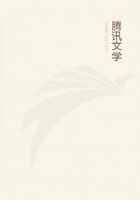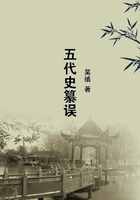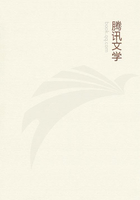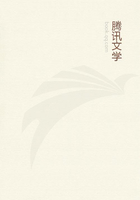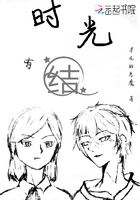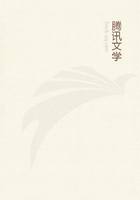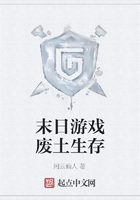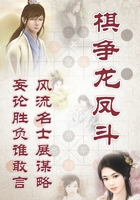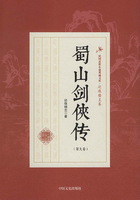Therefore, after briefly showing that the contrary is the case, I go on to prove it by, the same method, as that whereby I have hitherto proceeded.
Prop. XIX. Every man, by the laws of his nature, necessarily desires or shrinks from that which he deems to be good or bad.
Proof.- The knowledge of good and evil is (IV:viii.) the emotion of pleasure or pain, in so far as we are conscious thereof; therefore, every man necessarily desires what he thinks good, and shrinks from what he thinks bad. Now this appetite is nothing else but man's nature or essence (Cf. the Definition of Appetite, III.ix.note, and Def. of the Emotions, i.). Therefore, every man, solely by the laws of his nature, desires the one, and shrinks from the other, &c. Q.E.D.
Prop. XX. The more every man endeavours, and is able to seek what is useful to him - in other words, to preserve his own being - the more is he endowed with virtue; on the contrary, in proportion as a man neglects to seek what is useful to him, that is, to preserve his own being, he is wanting in power.
Proof.- Virtue is human power, which is defined solely by man's essence (IV:Def.viii.), that is, which is defined solely by the endeavour made by man to persist in his own being. Wherefore, the more a man endeavours, and is able to preserve his own being, the more is he endowed with virtue, and, consequently (III:iv.&,vi.), in so far as a man neglects to preserve his own being, he is wanting in power. Q.E.D.
Note.- No one, therefore, neglects seeking his own good, or preserving his own being, unless he be overcome by causes external and foreign to his nature. No one, I say, from the necessity of his own nature, or otherwise than under compulsion from external causes, shrinks from food, or kills himself: which latter may be done in a variety of ways. A man, for instance, kills himself under the compulsion of another man, who twists round his right hand, wherewith he happened to have taken up a sword, and forces him to turn the blade against his own heart; or, again, he may be compelled, like Seneca, by a tyrant's command, to open his own veins - that is, to escape a greater evil by incurring, a lesser; or, lastly, latent external causes may so disorder his imagination, and so affect his body, that it may assume a nature contrary to its former one, and whereof the idea cannot exist in the mind (III:x.) But that a man, from the necessity of his own nature, should endeavour to become non-existent, is as impossible as that something should be made out of nothing, as everyone will see for himself, after a little reflection.
Prop. XXI. No one can desire to be blessed, to act rightly, and to live rightly, without at the same time wishing to be, act, and to live - in other words, to actually exist.
Proof.- The proof of this proposition, or rather the proposition itself, is self-evident, and is also plain from the definition of desire. For the desire of living, acting, &C., blessedly or rightly, is (Def. of the Emotions, i.) the essence of man - that is (III:vii.), the endeavour made by everyone to preserve his own being. Therefore, no one can desire, &c. Q.E.D.
Prop. XXII. No virtue can be conceived as prior to this endeavour to preserve one's own being.
Proof.- The effort for self-preservation is the essence of a thing (III:vii.); therefore, if any virtue could be conceived as prior thereto, the essence of a thing would have to be conceived as prior to itself, which is obviously absurd. Therefore no virtue, &c. Q.E.D.
Corollary.- The effort for self-preservation is the first and only foundation of virtue. For prior to this principle nothing can be conceived, and without it no virtue can be conceived.
Prop. XXIII. Man, in so far as he is determined to a particular action because he has inadequate ideas, cannot be absolutely said to act in obedience to virtue; he can only be so described, in so far as he is determined for the action because he understands.
Proof.- In so far as a man is determined to an action through having inadequate ideas, he is passive (III:i.), that is (III:Def.i., &iii.), he does something, which cannot be perceived solely through his essence, that is (by IV:Def.viii.), which does not follow from his virtue. But, in so far as he is determined for an action because he understands, he is active; that is, he does something, which is perceived through his essence alone, or which adequately follows from his virtue. Q.E.D.
Prop. XXIV. To act absolutely in obedience to virtue is in us the same thing as to act, to live, or to preserve one's being (these three terms are identical in meaning) in accordance with the dictates of reason on the basis of seeking what is useful to one's self.
Proof.- To act absolutely in obedience to virtue is nothing else but to act according to the laws of one's own nature. But we only act, in so far as we understand (III:iii.) : therefore to act in obedience to virtue is in us nothing else but to act, to live, or to preserve one's being in obedience to reason, and that on the basis of seeking what is useful for us (IV:xxii.Coroll.). Q.E.D.
Prop. XXV. No one wishes to preserve his being for the sake of anything else.
Proof.- The endeavour, wherewith everything endeavours to persist in its being, is defined solely by the essence of the thing itself (III:vii.); from this alone, and not from the essence of anything else, it necessarily follows (III:vi.) that everyone endeavours to preserve his being.
Moreover, this proposition is plain from IV:xxii.Coroll., for if a man should endeavour to preserve his being for the sake of anything else, the last-named thing would obviously be the basis of virtue, which, by the foregoing corollary, is absurd. Therefore no one, &c. Q.E.D.
Prop. XXVI. Whatsoever we endeavour in obedience to reason is nothing further than to understand; neither does the mind, in so far as it makes use of reason, judge anything to be useful to it, save such things as are conducive to understanding.


